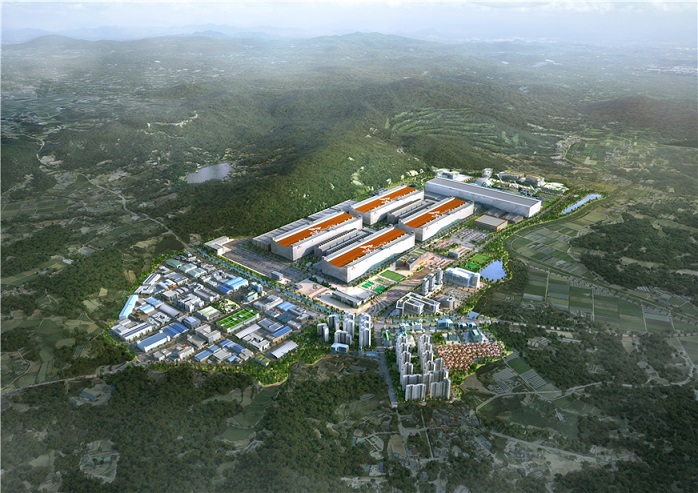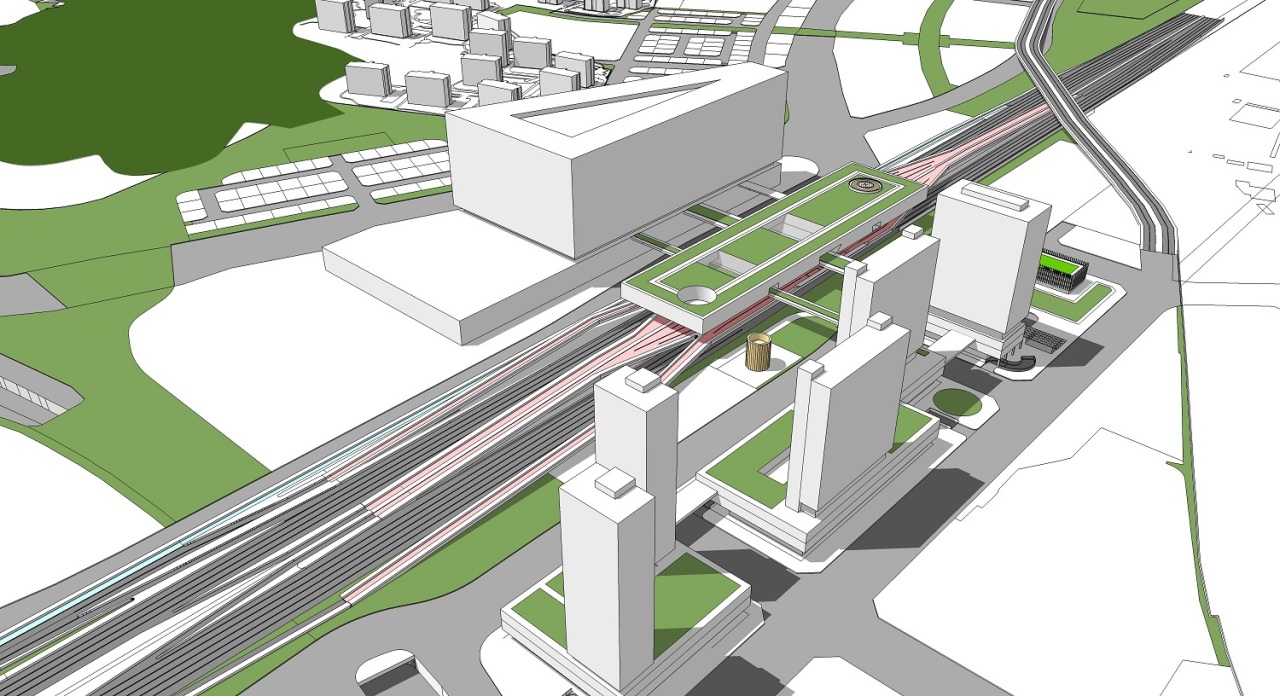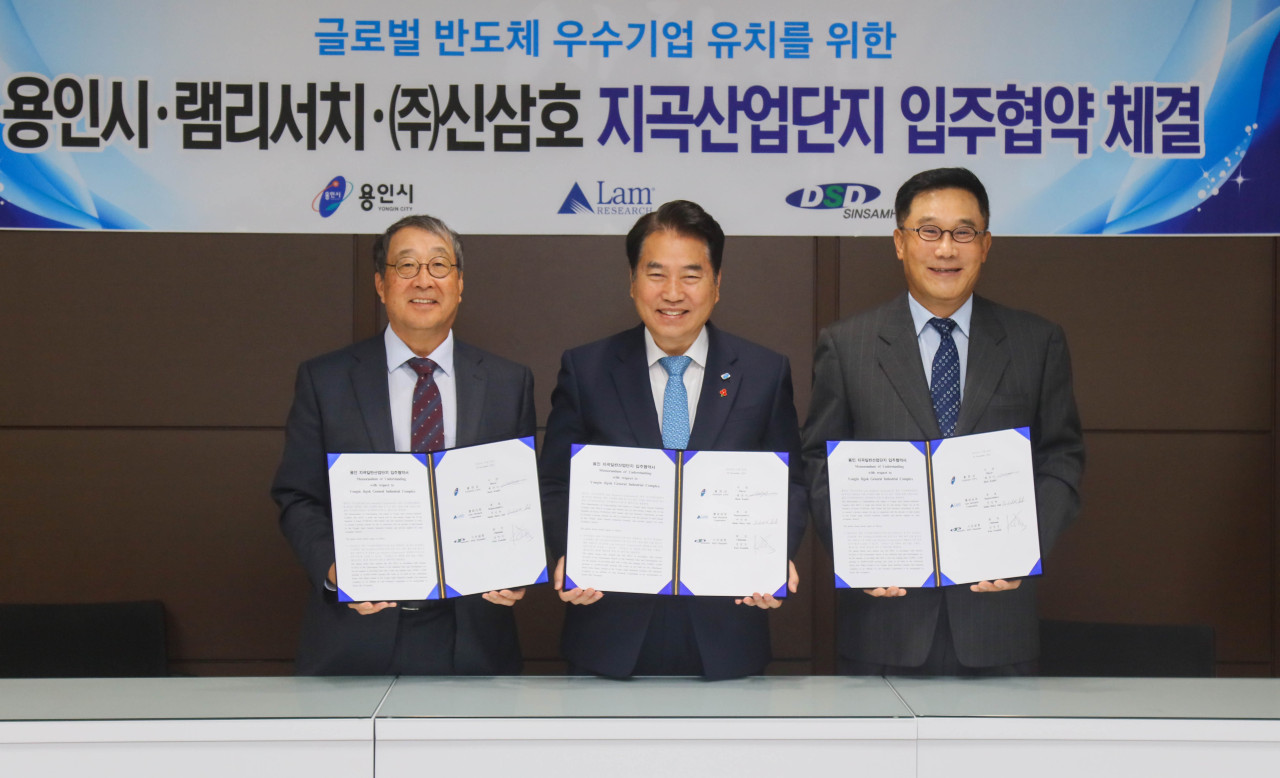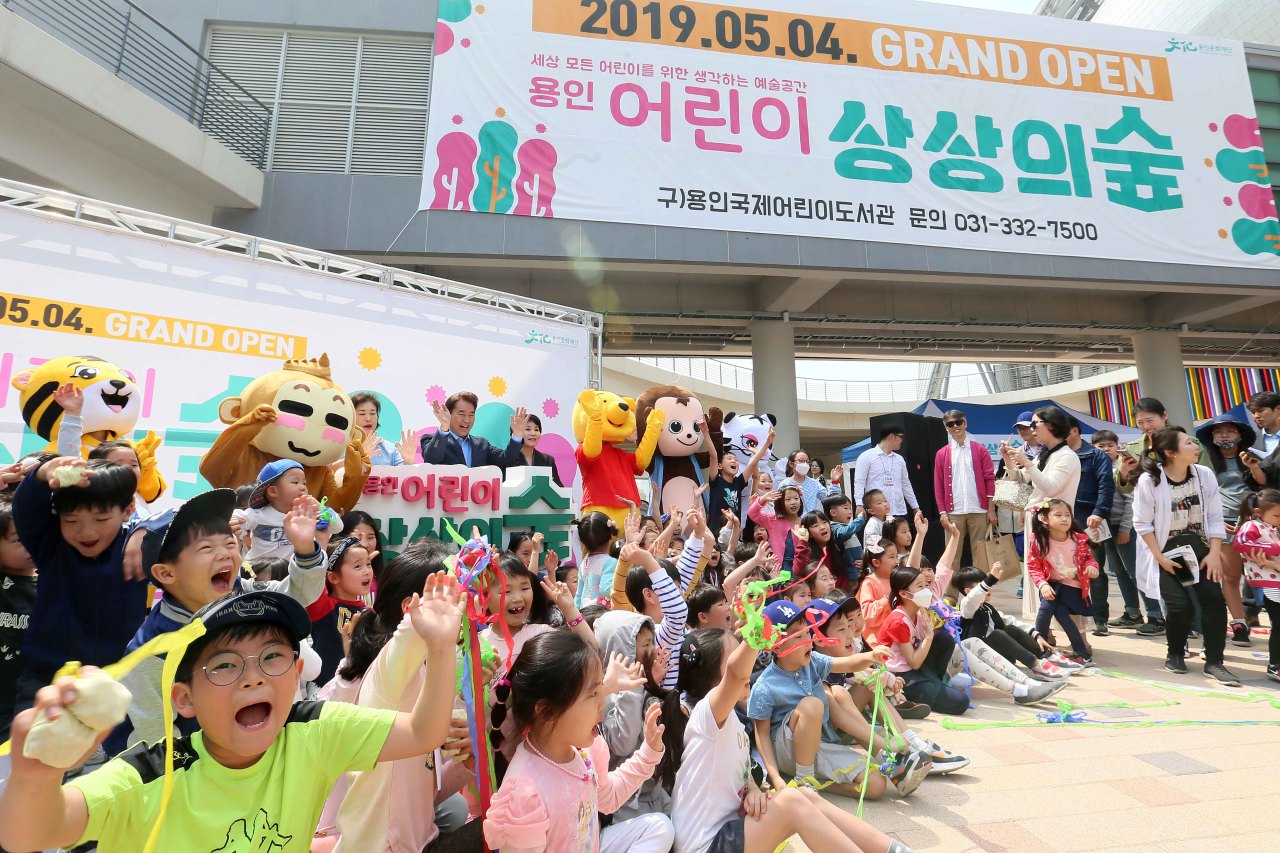 |
The view of SK hynix’ semiconductor complex in Yongin (Yongin City) |
Yongin, Gyeonggi Province, located about 40 kilometers south of Seoul, has grown into a city of more than 1 million known for a clean environment with citizen-friendly policies.
With Mayor Baek Kun-ki heralding the city’s remarkable change, Yongin transformed into a greener and more balanced city with improved standards of living for its citizens -- when it comes to the economy, job opportunities, transportation and education, among others.
On Thursday, Yongin will start a new era as a “special city.” The upgraded status is given to a city with a population of 1 million, allowing it greater autonomy and discretion.
Marking the milestone, The Korea Herald is looking back at the past three years in Yongin. Every year, the city conducts a survey for its citizens to pick Yongin’s top 10 news events. The look back at the past headlines will give a glimpse into how the city developed and improved over the years, and where it is headed.
Yongin 2021: public transportation expansion, chip complex plan
A total of 10,125 Yongin citizens participated in the 2021 survey conducted both online and offline, allowing them to vote up for to five policies out of 15 listed.
The most important news of 2021 was the South Korean government’s decision to include the extension plan of the Bundang Line subway -- from Giheung Station in Yongin down to Dongtan and Osan -- into the country’s fourth nationwide railway plan, which garnered a total of 5,419 votes (10.9 percent).
The extension of the Budang Line was praised by Yongin citizens because it is expected to ease traffic congestion and allow residents to conveniently commute to nearby areas, including Dongtan and Osan, as well as the Seoul metropolitan area.
Yongin City’s plan to establish a transfer center between Yongin Station for the high-speed commuter train GTX and the Gyeongbu Expressway came in second, with 4,879 votes (9.8 percent.)
The transfer center is the first of its kind in the country and is slated to open next year. It will allow people to easily transfer between the GTX train and expressway bus.
 |
The blueprint for GTX transfer center in Yongin (Yongin City) |
The third most important news story was the Yongsan semiconductor cluster being designated by the Ministry of Trade Industry and Energy as industrial clusters specializing in materials, parts and equipment, which garnered 4,789 votes (9.6 percent).
South Korean chipmaker SK hynix has been selected as the anchor company leading the Yongin complex, with the government injecting 1.7 trillion won ($1.4 billion) for the cluster for research and development, establishing a testbed and cultivating professionals.
Other issues that made the ranking include the newly opened Y-bus route for commuting (7.8 percent), plans to create 70,000 new jobs at 27 industrial complexes (7.7 percent), Yongin winning the right to host the 68th Gyeonggi-do Sports Festival (6.7 percent) and the library in Yongin ranking No.1 in Gyeonggi Province in number of books loaned and users (6.7 percent).
Plans to build public parks with flowers along one of the city’s major rivers, Gyeongancheon, received 6.4 percent of the votes, while the city’s decision to expand cash incentives for childbirth and to buy baby essentials got 5.9 percent. Yongin Y-Pay ranking No.1 on Gyeonggi government’s food delivery app Delivery Express, or Baedal Teukgeup in Korean, attracted 5.8 percent.
Meanwhile, journalists surveyed selected the Yongin semiconductor complex news as their top story, followed by the expansion of the Bundang Line in second.
City officials also picked the semiconductor complex as the top news, followed by the news of hosting the 68th Gyeonggi-do Sports Festival.
Yongin 2020: semiconductor investment, education support fund
In 2020, a total of 15,392 participated in the survey to select up to five policies out of 20 listed.
The news of attracting investments from Surplus Global and LAM Research, US semiconductor equipment companies linked to SK hynix, for the city’s semiconductor complex and a subsequent generation of more jobs topped the ranking, with 53.2 percent.
 |
Yongin Mayor Baek Kun-ki (center) holds up the agreement signed with Lam Research to provide an industrial site to establish a technology center in Nov. 2019. |
The city’s decision to provide the nation’s first elementary, middle and high school care support fund trailed with 51.5 percent, followed by the news of approval of Yongin Special City with 43.2 percent. The expansion of Yongin Y-Pay and the payment of disaster relief funds garnered 40.7 percent votes, while the joint agreement for the extension of Subway Line No. 3 came to 40.2 percent.
Plans to establish the tentatively named Yongin Central Park garnered 37.9 percent, followed by the news to build new parks at 13 sites that had been unused for a long time, with 29.8 percent
Implementing three major policies to prevent reckless development (28.3 percent), attracting four government agencies to strengthen city competitiveness (25.6 percent) and the opening of a new road, new M-bus route and three new Gyeonggi Premium bus routes (21.3 percent) also made the top 10.
 |
The reopening ceremony of Yongin Imaginary Forest for Children in May, 2019 (Yongin City) |
Yongin 2019: semiconductor complex and childcare program expansion
In 2019, the development of the semiconductor complex and attracting investment from LAM Research topped the list, closely followed by the expansion of childcare program and services.
Plans to establish new parks on 12 sites that had been unused for a long time came in third, followed by special measures to prevent reckless development and strengthening criteria for development permit ranked No. 4.
Following that was news of the new residential and commercial town in Giheung-gu, called “Platform City,” being approved to be part of the nation’s urban planning. The city’s commissioning of research for the three railway routes, opening of Yongin Imaginary Forest for Children and Yongin’s population nearing 1,08 million were also in the top 10.
By Ahn Sung-mi (
sahn@heraldcorp.com)










![[Robert Fouser] Accepting migrants in South Korea](http://res.heraldm.com/phpwas/restmb_idxmake.php?idx=644&simg=/content/image/2024/10/31/20241031050896_0.jpg)
